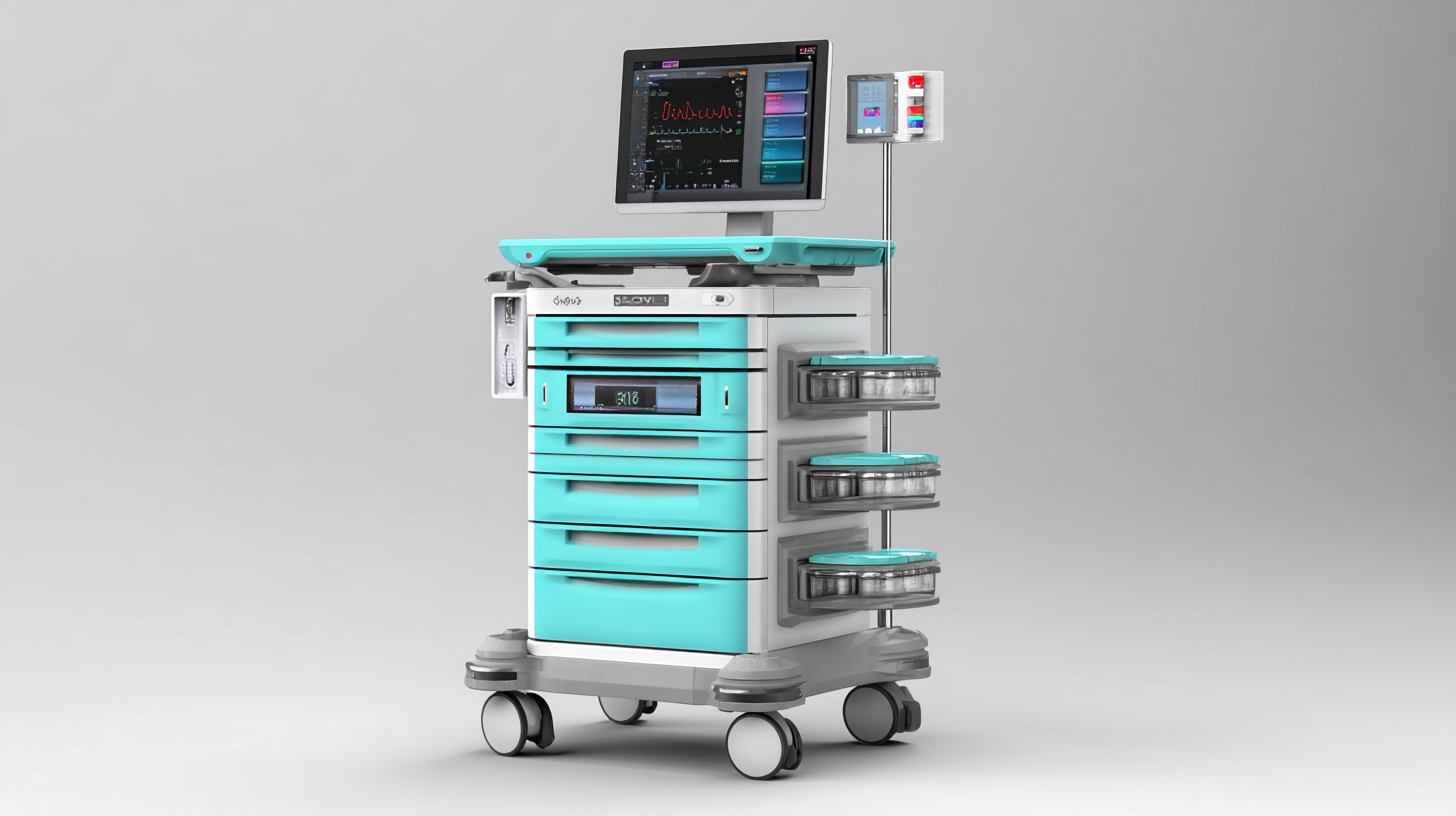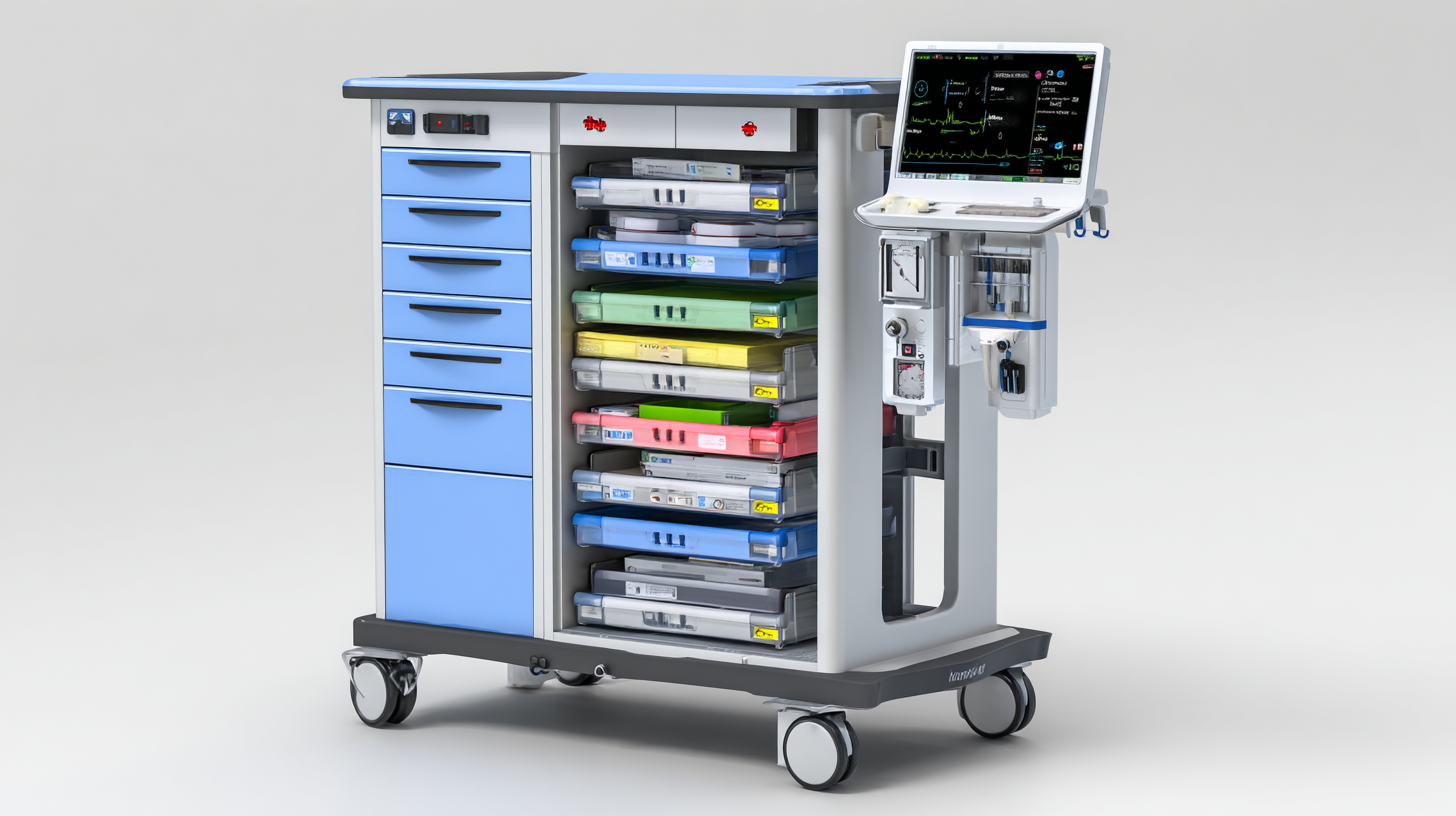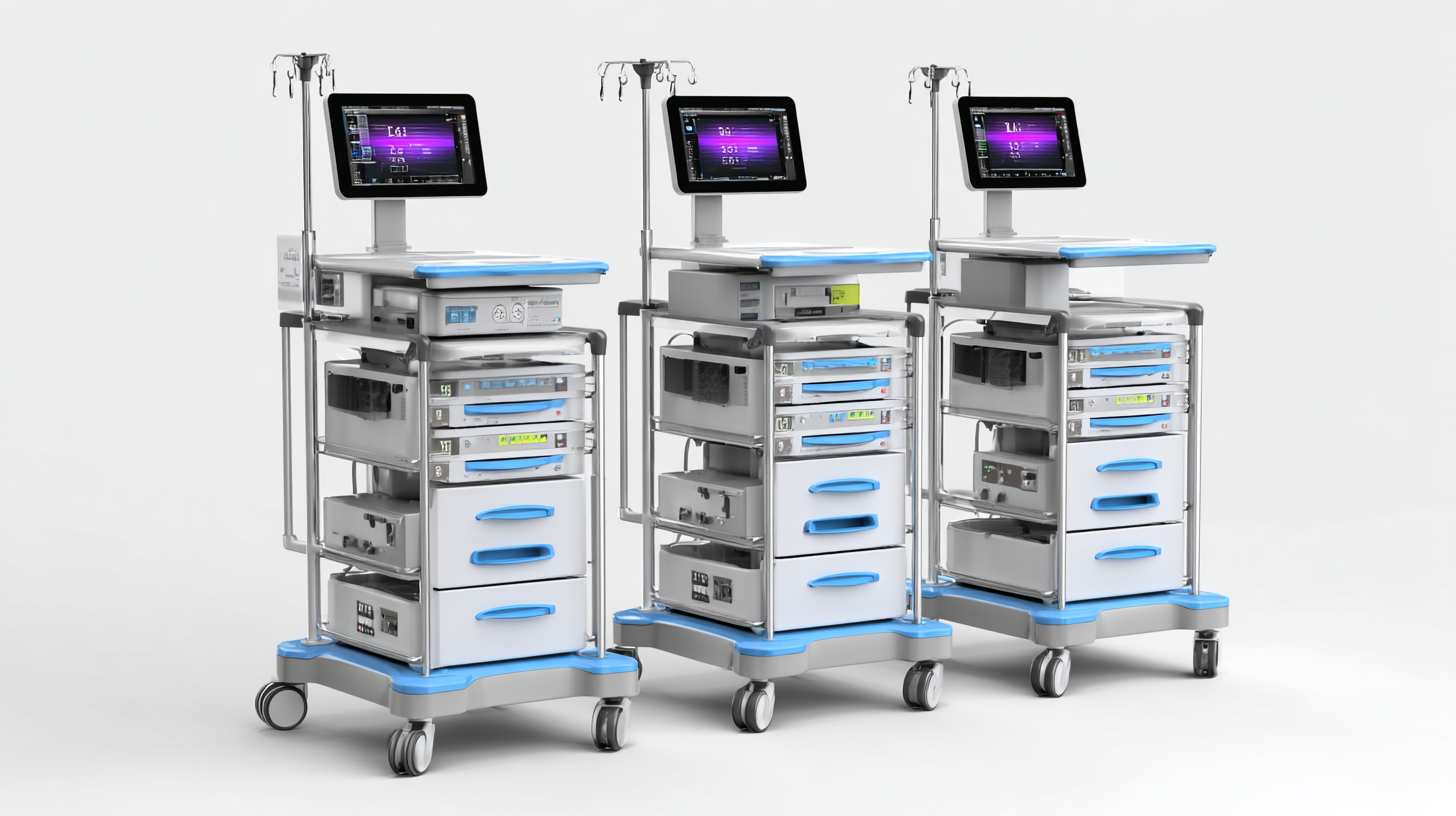10 Best Howard Medical Carts for Streamlined Healthcare Delivery
In the rapidly evolving landscape of healthcare, the integration of advanced technology has become paramount for enhancing patient care and operational efficiency. As reported by the Healthcare Information and Management Systems Society (HIMSS), the adoption of mobile medical carts is projected to increase by 30% over the next five years, reflecting a significant shift towards streamlined healthcare delivery.

Among these innovations, Howard medical carts stand out for their versatility and efficiency, designed to support healthcare professionals in providing timely and effective care. With the demand for reliable and mobile solutions on the rise, the importance of selecting the best medical carts cannot be overstated, as they play a critical role in improving workflows and enhancing the overall patient experience.
This blog will explore the ten best Howard medical carts available, highlighting their features and benefits in the context of 2025's technological trends.
The Impact of Efficient Medical Carts on Patient Care Delivery Metrics
 Efficient medical carts play a pivotal role in enhancing patient care delivery metrics by streamlining workflows in healthcare settings. These mobile workstations are specifically designed to reduce the time clinicians spend searching for supplies and medications, allowing them to focus more on patient interactions. By having essential tools and medications readily accessible, healthcare providers can respond quickly to patient needs, leading to improved response times and overall satisfaction for both staff and patients.
Efficient medical carts play a pivotal role in enhancing patient care delivery metrics by streamlining workflows in healthcare settings. These mobile workstations are specifically designed to reduce the time clinicians spend searching for supplies and medications, allowing them to focus more on patient interactions. By having essential tools and medications readily accessible, healthcare providers can respond quickly to patient needs, leading to improved response times and overall satisfaction for both staff and patients.
Moreover, the integration of technology into medical carts furthers the impact on care delivery. Many modern carts come outfitted with electronic health record (EHR) access, allowing healthcare professionals to document and retrieve patient information on-the-go. This immediate access to data not only ensures that accurate information is available during critical moments but also enhances communication among team members, reducing errors and improving care coordination. The seamless functionality of well-designed medical carts contributes significantly to key metrics such as patient safety, length of stay, and hospital throughput, ultimately benefiting the healthcare system as a whole.
Enhancing Workflow Efficiency: How Howard Medical Carts Reduce Nurse Response Times
In today's fast-paced healthcare environment, every second counts, especially when it comes to patient care. Howard Medical Carts have emerged as vital tools in promoting efficiency and reducing nurse response times. By integrating advanced technology and ergonomic design, these carts enable healthcare professionals to access essential equipment and medications rapidly, thereby enhancing their ability to attend to patients’ needs promptly. The strategic placement of compartments and user-friendly layouts allows nurses to navigate through busy hospital corridors with ease, ensuring that they can deliver timely care without unnecessary delays.

Moreover, the customizable features of Howard Medical Carts facilitate seamless integration into existing workflows. For instance, carts can be tailored to accommodate specific medical devices or supplies required for different departments, ensuring that nurses have everything they need at their fingertips. This adaptability not only streamlines operations but also minimizes the risk of errors that can occur when time is of the essence. As healthcare facilities continue to seek innovative solutions to improve patient outcomes, investing in Howard Medical Carts represents a significant step towards optimizing workflow efficiency and enhancing the overall quality of care.
Integrating Technology: The Role of Digital Solutions in Modern Medical Carts
In recent years, the integration of digital solutions into healthcare has revolutionized the functionality of medical carts. According to a report by MarketsandMarkets, the global market for medical carts is projected to reach $4.4 billion by 2025, driven largely by advancements in technology that enhance patient care and operational efficiency. Modern medical carts are now equipped with electronic health record (EHR) systems, medication dispensing systems, and telehealth capabilities, allowing healthcare professionals to access critical information on the go. This transformation supports quicker decision-making and reduces human error in clinical settings.
Implementing digital solutions in medical carts can significantly improve workflow efficiency. For instance, hospitals using smart medical carts have reported up to a 25% decrease in medication administration errors, according to a study published by the Journal of Healthcare Engineering. Additionally, incorporating mobile technology streamlines communication between staff, ensuring that patient care is cohesive and timely.
Tips for optimizing the use of digital medical carts include: ensuring that all staff members are adequately trained on new technology to maximize its potential, performing routine maintenance checks to keep the digital systems functioning smoothly, and regularly updating software to safeguard against cybersecurity threats. These practices will help healthcare facilities leverage technology effectively, ultimately leading to better patient outcomes.
Cost-Benefit Analysis: Investing in Quality Medical Carts for Improved ROI in Healthcare
Investing in quality medical carts is a strategic move that can yield significant returns on investment (ROI) in healthcare settings. Properly equipped carts streamline workflows, enhance patient care, and reduce operational costs. A well-designed medical cart improves accessibility to essential medical supplies and equipment, allowing healthcare professionals to spend more time delivering care and less time searching for tools. This efficiency not only boosts staff productivity but also positively impacts patient outcomes.
In light of recent industry shifts, such as the implementation of data-driven technologies and the growing demands for enhanced healthcare services, the cost-benefit analysis of medical carts becomes even more relevant. For instance, insights from recent studies reveal that investing in advanced solutions, like radio-frequency identification (RFID), can improve inventory management and reduce waste. As healthcare providers adapt to these reforms, integrating quality medical carts into their operations represents a practical and financially sound decision, ensuring that they remain competitive while meeting the evolving needs of their patients.
Investing in Quality Medical Carts: Cost-Benefit Analysis
This chart illustrates the cost-benefit analysis of investing in quality medical carts compared to standard medical carts. Higher initial investment and lower operational costs contribute to improved patient satisfaction and space utilization, ultimately leading to better ROI in healthcare.
Future Trends: Advancements in Medical Cart Design for Enhanced Healthcare Delivery
As the healthcare landscape continues to evolve, advancements in medical cart design are playing a pivotal role in enhancing patient care. Modern medical carts are increasingly incorporating technology such as telehealth capabilities and real-time data access, allowing healthcare providers to engage with patients more effectively. This seamless integration of technology not only streamlines workflows but also empowers medical professionals to make quick, informed decisions at the point of care.
Ergonomic design is also a critical focus in the future of medical carts. With features like adjustable heights and lightweight materials, these carts are being tailored to accommodate the diverse needs of healthcare workers, reducing strain and improving mobility within clinical settings. Additionally, the incorporation of modular components allows facilities to customize carts to fit specific departmental requirements, ensuring that every aspect of patient care is efficient and user-centered. As the demand for optimized healthcare delivery rises, these design innovations will be essential in shaping the future of medical services.
10 Best Medical Carts for Streamlined Healthcare Delivery
| Model | Weight Capacity (lbs) | Material | Dimensions (inches) | Features | Price Range |
|---|---|---|---|---|---|
| Model A | 250 | Aluminum | 30 x 18 x 42 | Lockable drawers, Adjustable shelves | $400 - $500 |
| Model B | 300 | Steel | 32 x 20 x 40 | Ergonomic design, Smooth rolling wheels | $450 - $550 |
| Model C | 350 | Plastic | 28 x 16 x 38 | Lightweight, Easy to clean | $300 - $400 |
| Model D | 280 | Composite | 34 x 22 x 43 | Integrated IV pole, Ample storage | $350 - $450 |
| Model E | 400 | Aluminum | 36 x 24 x 45 | Anti-tip design, Customizable | $500 - $600 |
